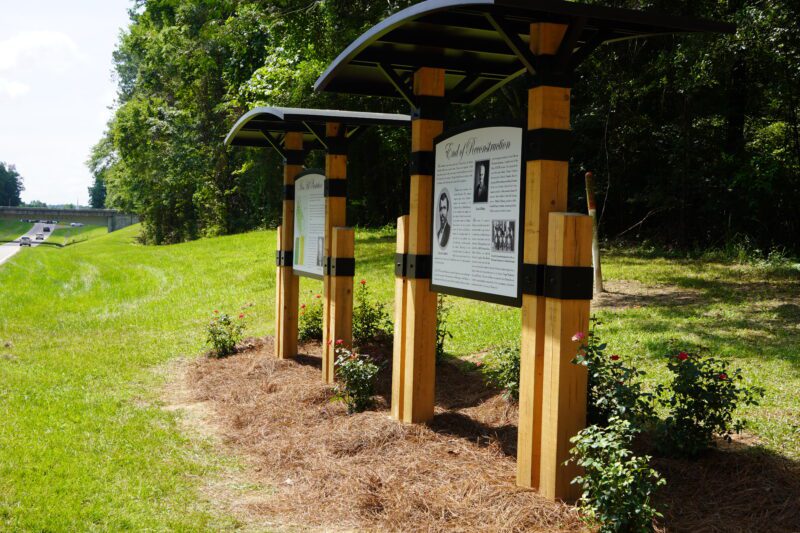Latest News
City of Clinton Unveils New Historical Markers Honoring Reconstruction-Era Legacy
On Thursday, July 17, 2025, the City of Clinton unveiled two new historical markers at the site of the former Moss Hill Plantation, furthering efforts to preserve and share the city’s complex Civil War and Reconstruction-era history. These markers now join the existing Mississippi Freedom Trail marker, creating a trio of interpretive installations that document key events and figures who shaped Clinton’s legacy.
The markers recognize the stories surrounding the Clinton Riot of 1875, the transformation of Moss Hill Plantation after the Civil War, and the significant contributions of leaders such as Sarah Dickey, Walter Hillman, and Senator Charles Caldwell. Their work in education and political progress helped lay the foundation for Clinton’s post-war development and the advancement of African-American communities during a pivotal time in the state’s history.
Mayor Will Purdie opened the ceremony by reflecting on Clinton’s longstanding commitment to honoring its history, emphasizing the city’s efforts to embrace the past as a way to guide the future.
Senator Hillman Frazier delivered powerful remarks highlighting the progress of formerly enslaved individuals following emancipation and Reconstruction. He also recognized the transformative work of Sarah Dickey, Walter Hillman, and Senator Charles Caldwell—all of whom played pivotal roles in Clinton’s post-war educational and civic landscape.
Judge Kenny Lewis offered closing remarks that emphasized the role of history as a tool for guidance and growth. He reminded attendees that these markers are more than symbols—they are monuments of memory that speak to the struggles and strength that shaped the community. His message underscored the importance of understanding history not as a burden, but as a foundation for future progress.
The markers detail:
-
The burning of the Moss Hill home by Union forces in 1863 and its later use by formerly enslaved residents for social and political gatherings.
-
The Republican rally held there on September 4, 1875, which triggered the Clinton Riot, one of the most significant episodes of racial and political violence in Mississippi during Reconstruction.
-
The assassination of Senator Charles Caldwell, a Black legislator who played a key role in organizing the rally and later became a symbol of resistance and sacrifice.
-
The educational efforts of Sarah Dickey, who founded Mount Hermon Seminary for Colored Females, and whose work led to the creation of what became known as the Dickeyville neighborhood—later annexed by the City of Clinton in 1907.
As Clinton approaches the 150th anniversary of the Clinton Riot in September, the unveiling of these markers serves as a timely reminder of the power of remembrance, the cost of progress, and the responsibility to carry history forward.
By preserving these stories, the City of Clinton affirms its commitment to education, inclusion, and building a future informed by the lessons of the past.




